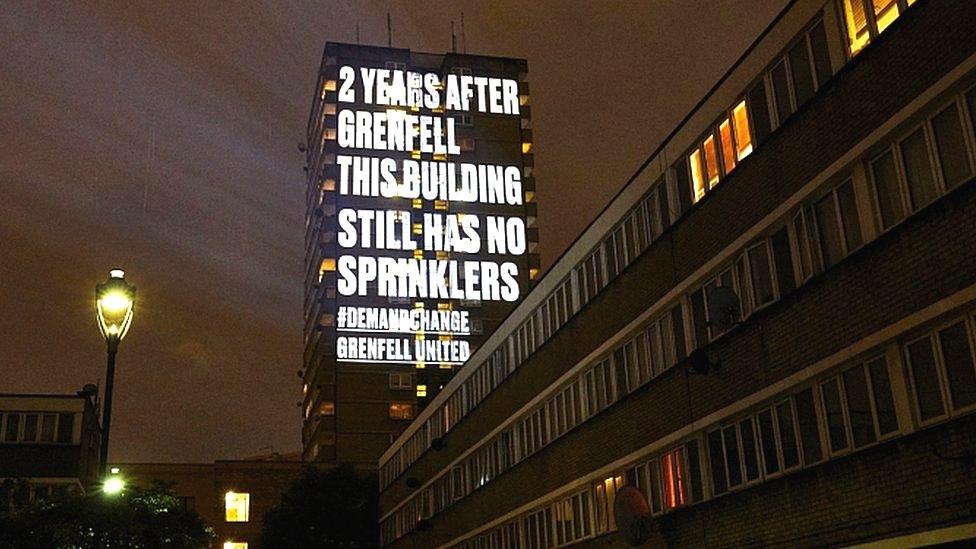Hospitals spend millions to remove flammable cladding
- Published
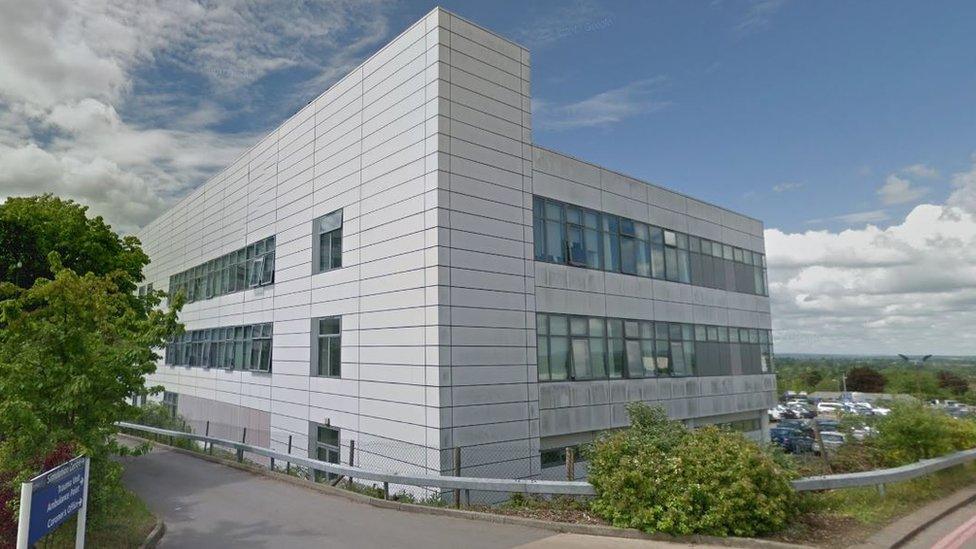
The trauma building at the John Radcliffe Hospital, Oxford
Hospitals are facing disruption and huge bills because of flammable cladding.
One trauma unit with Grenfell-style cladding has been closed for almost two years.
A senior worker there says it's having a knock-on effect on the rest of the hospital
The Department of Health and Social Care says it's working with trusts on remedial work.
At John Radcliffe Hospital in Oxford, the trauma unit was closed in August 2017 because it had so-called ACM cladding, similar to that on Grenfell Tower, and other fire safety issues. Beds have been moved to new trauma wards in the main hospital, but there are fewer of them.
Impact on patient care
A senior member of staff, who has asked to remain anonymous, told the BBC the closure of the trauma unit was having a detrimental effect on patient safety.
Last year, Marian Grant, 74, from Brighton, fell and broke her hip. She died after medical staff failed to spot an alert to give her medication to prevent deep vein thrombosis or DVT. There were no trauma beds so she was admitted to a neurological ward where it was not routine to give this kind of medication. She died in the operating theatre from a pulmonary embolism caused by the DVT.

Marian Grant died after suffering a pulmonary embolism
Her son, Nick, said: "Every time somebody went on to a computer to log in for that patient, apparently a sign came up on 27 occasions to check for deep vein thrombosis. I think everybody else assumed that everybody else had done it. Knowing that there are fail-safes that break down when patients aren't in the right ward. It's just heartbreaking."
'Accidental death'
The coroner recorded Mrs Grant's death as accidental.
John Radcliffe Hospital says it found no evidence of a direct causal link between the closure of the trauma unit and her death. It says even when the trauma unit was open, some patients were treated on other wards and that number is similar to now.
The hospital says an audit revealed inconsistencies in deep vein thrombosis treatment which have since been addressed.
A spokesman added: "We are working carefully to complete highly detailed work to set out the options available to us to bring the trauma building back into use."
Other hospitals also still have Grenfell-style Aluminium Composite Material or ACM cladding. Some have begun removal work:
Queen Elizabeth Hospital in Gateshead. Due to be finished next month, but has not yet been fully costed.
Heart and Lung Centre in Wolverhampton. Should be completed in December and will cost £1.7m
Queen Elizabeth University Hospital in Glasgow. Due to be completed in July. Total bill, including the replacement of cladding at the Royal Hospital for Children in Glasgow which happened last year, is £6m
Cancer Centre, Guy's and St Thomas' in London. Developing plans to remove cladding. The hospital says the ACM makes up only 15% of the surface area and the building is safe because of the extensive fire protection systems in place.
The BBC has discovered that the new Midland Metropolitan Hospital, being built to serve the Birmingham area, is removing fire-retardant wooden cladding.
The Sandwell and West Birmingham Hospitals Trust is now spending £1m to replace cladding on the outer walls of the wards with non-combustible material.
Construction stalled after the collapse of the building firm Carillion.
A spokesperson for the Trust told BBC Radio 4's File on 4 programme: "The work is expected to take six months, and will be done at the same time as other remaining works on the Midland Met construction site, ensuring no further delay to the completion of the new hospital."
The Department of Health and Social Care said: "We are working with building owners on appropriate remedial work whilst considering building users' needs."
File on 4: Beyond Grenfell: The Cladding Lottery is broadcast on BBC Radio 4 on Sunday, 30 June at 17:00 BST. You can also catch up on BBC Sounds
- Published26 May 2019
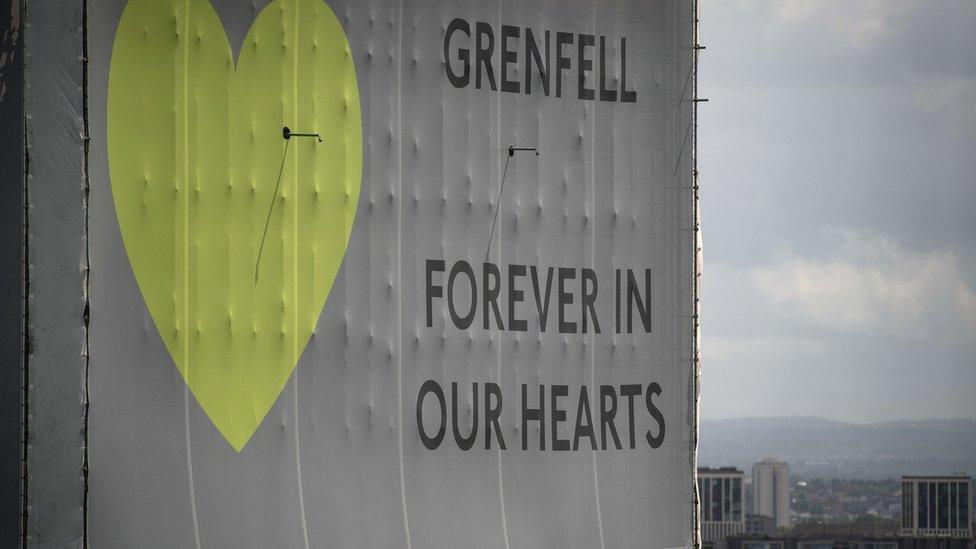
- Published9 May 2019
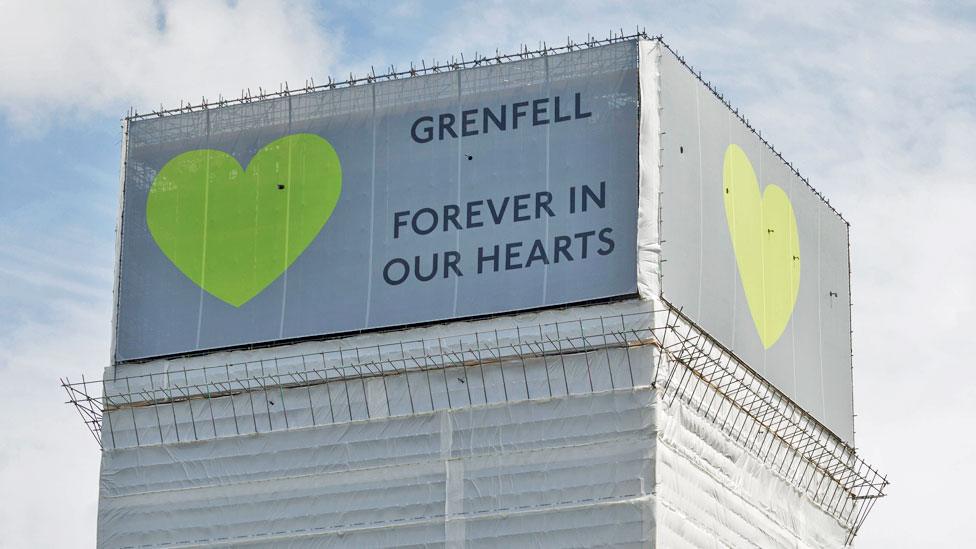
- Published8 November 2018
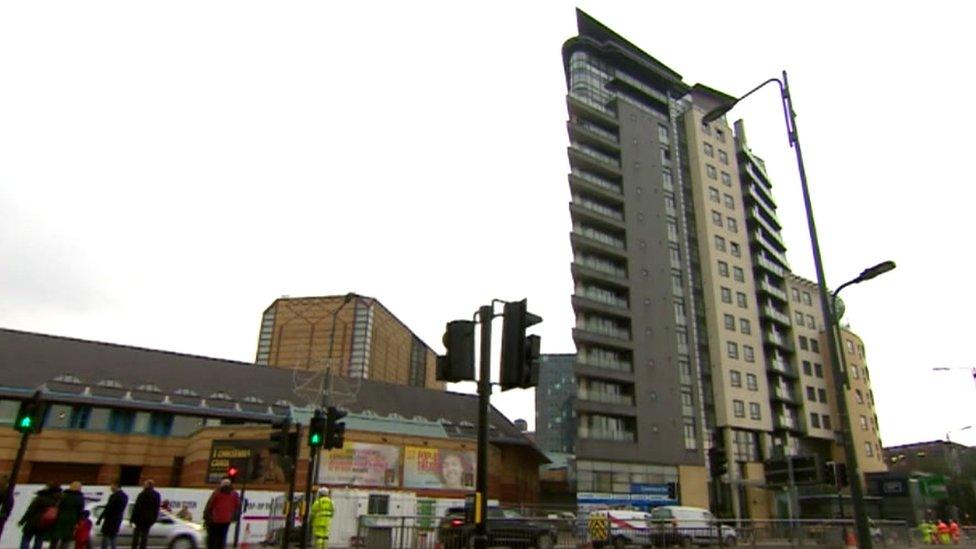
- Published14 June 2019
